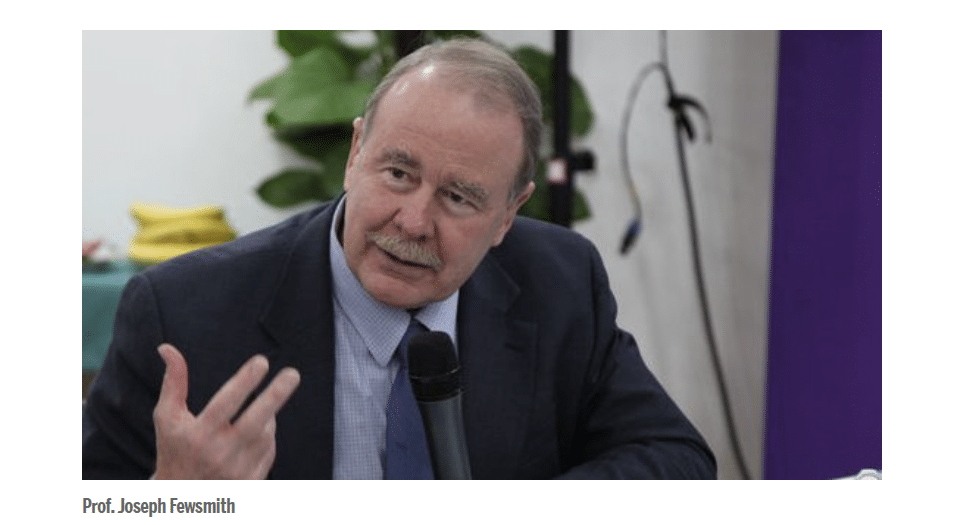How Capable Are the U.S. and Japan of Intervening in a Taiwan Conflict?
Ambassador Cui Tiankai Bids Farewell
On June 21, 2021, Cui Tiankai, the Chinese ambassador to the United States, formally announced his retirement. Cui’s departure, marking the end of his eight-year stint as ambassador, comes at what Cui himself describes as a “critical crossroads”. Since assuming the position in 2013, Cui has watched as U.S.-China relations have plunged to historical lows, marred by a trade war, escalating tensions, and a highly politicized pandemic. Yet through it all, Cui brought level-headedness and poise rarely seen in today’s political climate. With Cui’s departure, a vacuum has emerged within a critical conduit between the world’s superpowers, one that looks to be filled by Vice Minister of Foreign Affairs, Qin Gang.
Born in 1952, Cui attended East China Normal University where he studied English. He continued his studies on interpretation at Beijing Foreign Language Institute until 1981 where he was appointed interpreter for the Secretariat at the United Nations’ headquarters. Working at the Department of International Organizations and Conferences within the Ministry of Foreign Affairs, Cui held a series of successively higher positions until 1997 when he transferred into the Information Department as Deputy Director-General. He continued to climb the ranks of the Ministry of Foreign Affairs, eventually becoming Assistant Minister of Foreign Affairs from 2006 to 2007. After a two-year position as Chinese Ambassador to Japan, he became Vice Minister of Foreign Affairs in 2009 where he oversaw the Americas and Oceania. Given his long diplomatic career and familiarity with the United States, Cui’s appointment to ambassador in 2013 was a natural choice.
But as hawkish American policymakers and China’s “Wolf Warriors” adopt increasingly confrontational stances, Cui’s understanding of diplomatic nuance will undoubtedly be missed. Andrew Mertha, director of China Studies at Johns Hopkins University’s School of Advanced International Studies, once said that Cui “absolutely represents China’s interests, but he deeply understands U.S. views as well…[He] understands the political realities in both countries and is able to navigate them extremely well”. Cui has even come to the U.S.’ defense amidst false allegations from his fellow diplomats. After spokesman for the Ministry of Foreign Affairs, Zhao Lijian, insinuated that the U.S. military brought COVID-19 to China during the 2019 Military World Games in Wuhan, Cui responded with a veiled rebuke, claiming that theory was “crazy”.
Such displays of open-mindedness during Cui’s tenure will be remembered fondly by those in Washington. Susan Thornton, a former American diplomat and current Senior Fellow at Yale Law School’s Paul Tsai China Center, stated that Cui “brought a calm sensibility that was badly needed during his time in Washington, and he certainly did everything he could to steady things in unsteady times. It is a quality that we all need more of”.
As Cui’s ambassadorial chapter ends, it looks as though Qin’s will soon begin. While Cui’s career was defined by a more moderate approach, it remains to be seen how Qin will perform as China’s most important ambassador overseas. In fact, Qin has never served as a senior diplomat anywhere. As Director-General of the Information Department and Vice Minister of Foreign Affairs, Qin used to express a decidedly strident tone. Labeling countries that “smeared” China for its conduct in Xinjiang as “evil wolves”, Qin could certainly qualify as a wolfish cheerleader of China. Ultimately, only time will tell how he will fare as the new Chinese ambassador to the United States. But one thing is for certain: he will play a critical role in redefining the future of U.S.-China relations.
Below is a letter from President Carter thanking Ambassador Cui Tiankai for his service. Despite Cui’s departure, President Carter remains hopeful that China’s next ambassador will assist in stabilizing the bilateral relationship.









